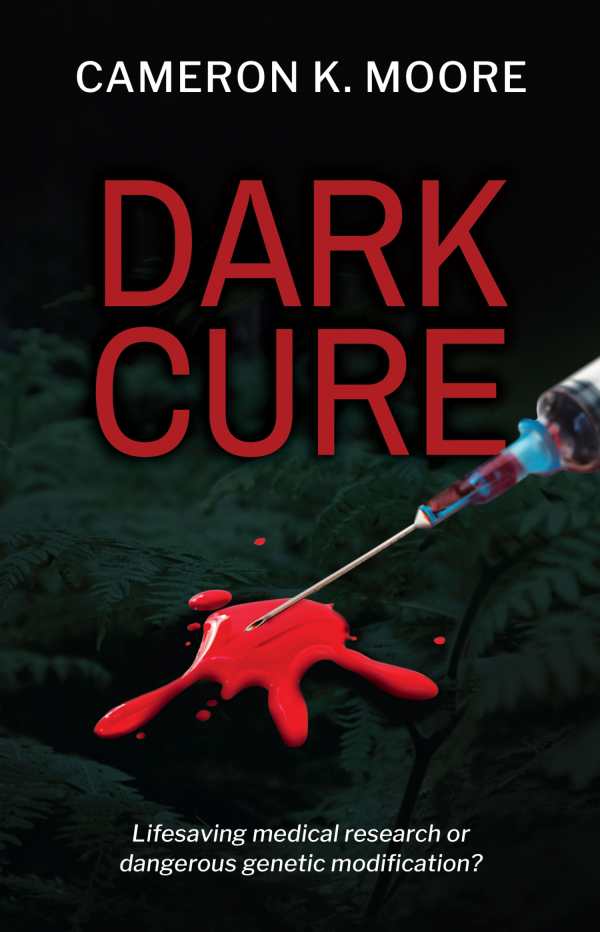Dark Cure
Dark Cure is an action potboiler that raises compelling questions about contemporary science.
Cameron K. Moore’s biomedical thriller, Dark Cure, is set in a mysterious rain forest. Its characters include members of French military intelligence, American college students, professional researchers, and one seriously tough former French Foreign Legionnaire.
The plot centers around the so-called “Alzheimer’s cure.” Its discovery potentially holds the key to unraveling one of the world’s worst afflictions. However, as the novel progresses, it becomes clear that this newfound cure could be used to Frankenstein-like ends. Here lies the conflict of the novel: Can “good” science save this cure, or are all biomedical discoveries bound to be perverted, no matter their original intentions?
The cast includes Jacques Benoit, a former officer in the French Foreign Legion; French scientist and government intelligence asset Pierre Lacoux; John Alderton, the lead scientist dealing with the Alzheimer’s cure; Karl Shepherd, Benoit’s American counterpart; and a handful of students and researchers who find themselves hopelessly entangled in an international incident.
Some of these characters are written with depth. For instance, Benoit is a loyal citizen and soldier who is willing to do the impossible for France, but he is also deeply cynical about his superiors. Alderton’s brilliance is couched in a somewhat gruff exterior, and Shepherd is a great hero whose heart and head are only concerned with his family. Other characters, even if they are essential to the plot, are less dimensional, and some are cultural stereotypes: a happy-go-lucky trust fund kid, a sharp-tongued Italian American, and a brash and arrogant Irish Brooklynite.
The story is nonlinear and begins in media res. Near its conclusion, character backstories arise that would have serviced the plot better had they been introduced early on. This makes for stop-and-start reading, especially as some biographical facts are at odds with characterization, particularly when it comes to Shepherd’s military past.
Character dialogues tend to be stilted, and their quality weakens as the novel progresses. Otherwise, the prose is lean and muscular, with little time given to descriptions or scene setting. The storytelling here is straightforward, placing a great premium on action. There are shootouts aplenty, races in the jungle, and more than a few corpses. And while the conclusion is predictable, it is predictable in a way that makes sense.
Dark Cure is an action potboiler that raises compelling questions about contemporary science.
Reviewed by
Benjamin Welton
Disclosure: This article is not an endorsement, but a review. The publisher of this book provided free copies of the book and paid a small fee to have their book reviewed by a professional reviewer. Foreword Reviews and Clarion Reviews make no guarantee that the publisher will receive a positive review. Foreword Magazine, Inc. is disclosing this in accordance with the Federal Trade Commission’s 16 CFR, Part 255.

